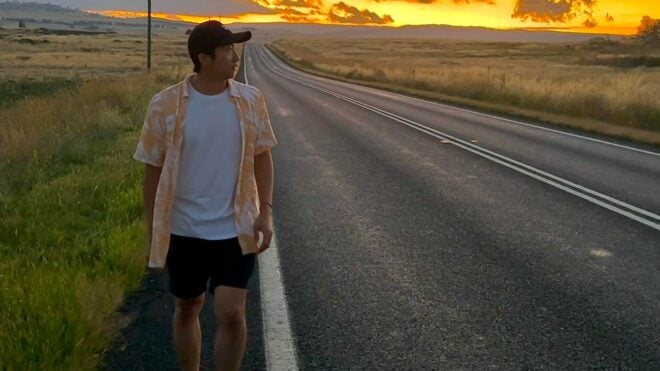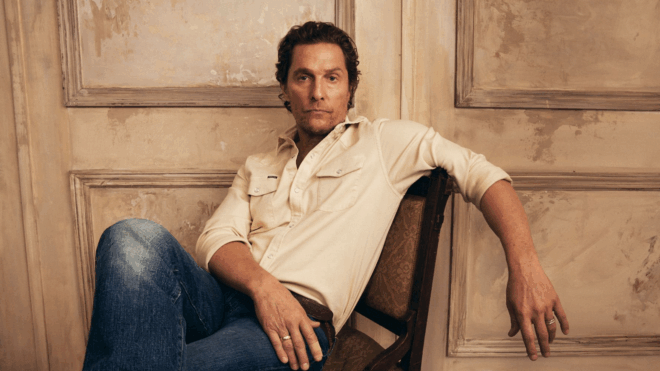British model and actress Jodie Turner-Smith has had a lot of things happen in the past few years. In October 2018, she met and started dating Dawson's Creek alum Joshua Jackson. Their relationship moved quickly, and they got married in December 2019. In 2020, the couple welcomed a daughter.
Moms have a choice in how to feed their babies. For some moms, breastfeeding comes naturally and serves as a beautiful way to bond with their baby. Other mothers pump exclusively. And finally, moms also have the option of formula, which can be incredible — especially since it gives their partners the ability to easily feed their child.
Jodie chose to breastfeed. While in itself it can be hard to master, she had other things on her mind during all of this. "We decided to live in West Hollywood for the birth [to be closer to a hospital in case of an emergency], so I was hearing the sirens and the marches," the 34-year-old said to Net-A-Porter's Porter magazine. "I could hear all the unrest outside the door, and it actually took me a while before I could watch the video of George Floyd because I was nursing my daughter and you think about the generational trauma that we already carry and deal with and pass on."
"I was trying really hard not to pass on that fear, sadness and anxiety through my breast to my child," she explained further. "I had to shut a lot of it down and just stay insular and inside my family for a bit." The struggle is a big one for moms — it's tough to fall apart when you know you have someone who depends on you to stay strong. But that doesn't mean those feelings don't exist.
When you have a child, you often want better for them than what you have. Thus, it's a challenge to bring children into the world today — when there's so much unrest, and authoritative actions make it seem as if Black lives don't matter. It's tough when you know they may someday have questions you can't answer.
Black men and women often grow up differently than others due to the amount of racial prejudice that's still in the world. In an article for The Atlantic, writer Dani McClain interviewed several Black mothers to talk about the lessons they equip their kids with before school. They know, based on how they grew up, that their children may be perceived as a threat solely based on the color of their skin.
One of the women she spoke to was Jessica Black from Pittsburg, California. Along with being a mother, Jessica also works with the Black Organizing Project, which offers peer-to-peer support for other Black mothers. As Dani found out, "many parents say their children behave as all children do, but wind up targeted by school officials because educators misinterpret these students' actions, assuming the worst. Glaring, making noise, and violating the school dress code can all lead to suspension." It's the start of racial profiling.
"The consequences are significant: When students are excluded from the classroom, they're more likely to do worse academically, become truant, drop out, and eventually come into contact with the juvenile-justice system," Dani writes. It's incidents like these that make many Black mothers fearful. Since breastfeeding can be such a personal experience, it makes sense as to why Jodie doesn't want to breastfeed while upset.
Jodie has admitted that her life has been pretty good, but she still wishes for better for her baby girl. "You just want to create a better life — not that I had a bad life by any means — but the heartbreaks I had in my own life, ideally I want to save my daughter from having them," she told Porter. She's been looking out for the well-being of her daughter since she was pregnant.
Both Jodie and Joshua tried hard to stay calm when the news of the virus first started. "We're just trying to figure out on a moment to moment basis how to get through this with our sanity," Joshua said to People magazine. "We're in the board game stage now. We did a lot, a lot, a lot of binge-watching last week, so now … we've moved our way through Monopoly. Now it's actually Jenga. Jenga's the thing!"
Staying calm leading up to the birth proves that Jodie is tuned into her environment and knows how negative added stress can be. So she really went out of her way to stay as emotionally healthy as possible for the sake of her daughter — which has been especially hard this year. "She's physically fine and the baby is physically fine so the important things are all good," Joshua had said prior to his daughter's birth. "We're just figuring out how to deal with interacting with doctors and hospitals right now."
Even up to the birth, Jodie and Joshua tried their hardest to be calm and present, both for their daughter and for each other. "Right after I gave birth, my husband washed her, and the midwife and doula cleaned everything up. Then me, my husband and my daughter, we just slept for a good 12 hours," Jodie told Porter. "I needed that. We needed that."
She also chose a home birth, all due to another alarming statistic. As a pregnant Black woman, Jodie knew that pregnancy-related deaths happen to Black women three times more than for white women. The maternal mortality rate is alarming and upsetting, and mostly due to racial disparities.
"It's basically a public health and human rights emergency because it's been estimated that a significant portion of these deaths could be prevented," said Dr. Ana Langer, director of the Women and Health Initiative at the Harvard T.H. Chan School of Public Health in Boston to the American Heart Association. "Basically, black women are undervalued. They are not monitored as carefully as white women are. When they do present with symptoms, they are often dismissed."
These days, Jodie is still trying to figure out how to navigate the world we're in today, especially since things haven't been made easy for her or her daughter. "There was a moment where it felt really hopeful, when everyone was in this conversation about anti-racism … but it goes away and it gets quiet again," she said to Porter. She, herself, isn't afraid to bring these issues up on social media to help keep the conversation alive.
But there's one thing aside from her daughter that she's very thankful for — and that's her husband, Joshua. "I'm really in love with my husband," she admits. "That might be weird for people, but I'm doing a pretty good job of not shouting that from the rooftops as much as I would like to. He's a really amazing dude. Today's actually our two-year anniversary. It's only gotten better and I feel so grateful for that."
Hopefully, Jodie's daughter will live a life where nobody is discriminated or treated lesser than due to their skin. She's lucky to have two strong, supportive family members who'll make sure to always be by her side. As for Jodie, it's incredible how much she's already given to her daughter. She seems like a natural mom — and an inspiring woman overall.




